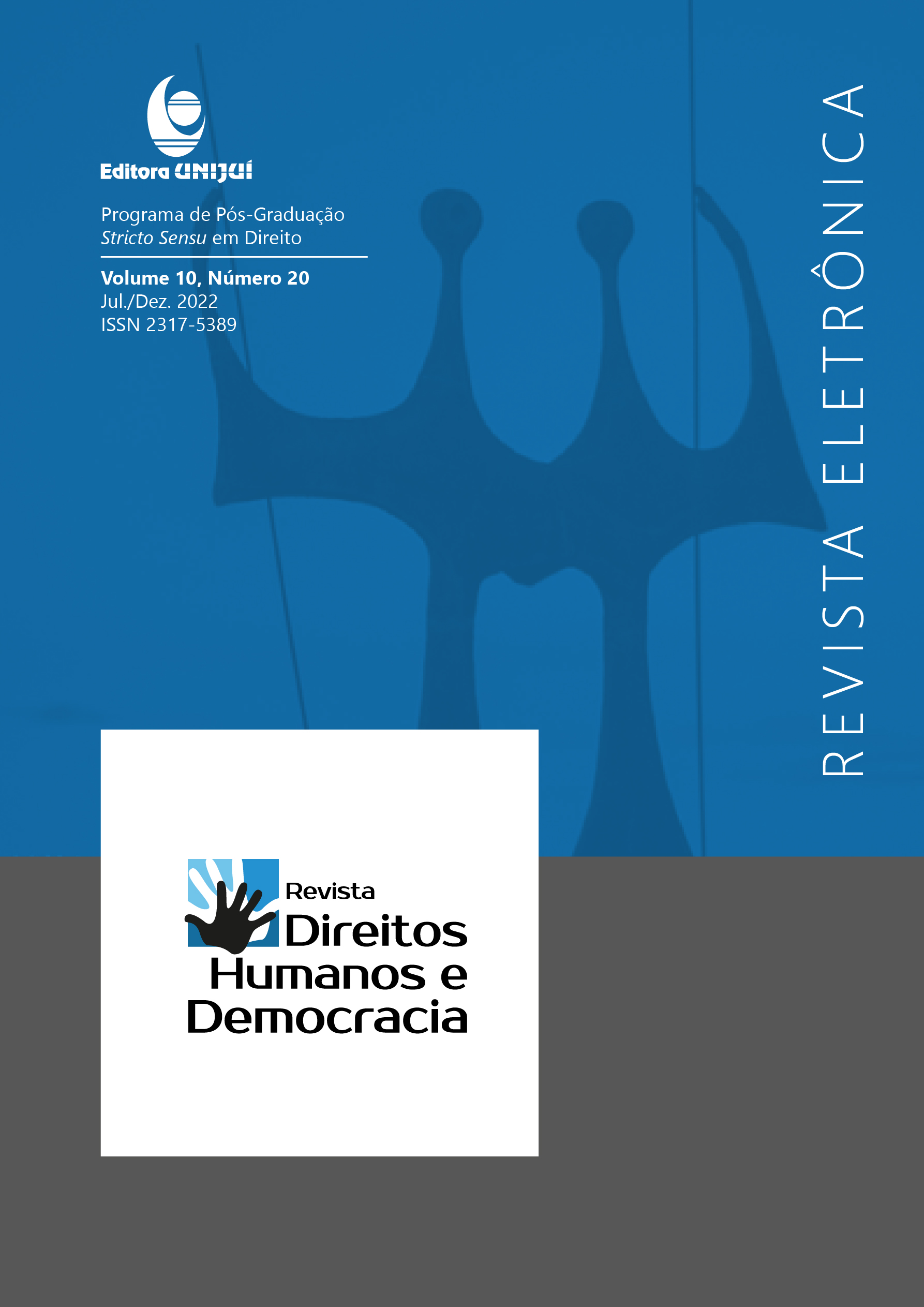Direitos do Homem, Ética e Sistema Judicial na Era da Inteligência Artificial
DOI:
https://doi.org/10.21527/2317-5389.2022.20.13760Palavras-chave:
Direitos humanos, Inteligência artificial, ÉticaResumo
Este artigo tem por objetivo compreender aproximações entre Direito e tecnologias da informação e comunicação (TICs), especialmente no que tange à inteligência artificial (IA). São identificadas as atuais aplicações da IA no Direito, bem como constatadas as implicações de adequação que as máquinas artificialmente inteligentes encontram no percurso de inserção, sobretudo quando se está diante das hipóteses de substituição do juiz humano por um robô. Portanto, o fio condutor do texto é a análise da possibilidade da continuidade da aplicação da IA no Poder Judiciário e na política de organização judicial de forma responsável, confiável, segura e sem prejuízos à ética e aos Direitos Humanos. Discute-se a utilização da IA como ferramenta para otimizar tempo para o juiz humano apreciar casos mais complexos e impulsionar seu trabalho psicológico em cada demanda, em contraposição à ideia de que a continuidade de sua aplicação revelar prejuízos e impactos deletérios ao sistema jurídico. Identifica-se a necessidade de, com base em modelos internacionais e conceitos éticos consagrados, construir estruturas e arquiteturas de diretrizes éticas e principiológicas, de forma a propiciar criação, desenvolvimento e utilização das ferramentas de inteligência artificial de modo adequado, objetivando garantias de robustez, segurança, transparência, confiança e não-discriminação, com cerne no princípio da dignidade da pessoa humana e dos Direitos Humanos.
Downloads
Publicado
Como Citar
Edição
Seção
Licença
Copyright (c) 2022 Revista Direitos Humanos e Democracia

Este trabalho está licenciado sob uma licença Creative Commons Attribution 4.0 International License.
Ao publicar na Revista Direitos Humanos e Democracia, os autores concordam com os seguintes termos:
Os trabalhos seguem a licença Creative Commons Atribuição 4.0 Internacional (CC BY 4.0), que permite:
Compartilhar — copiar e redistribuir o material em qualquer meio ou formato;
Adaptar — remixar, transformar e criar a partir do material para qualquer fim, inclusive comercial.
Essas permissões são irrevogáveis, desde que respeitados os seguintes termos:
Atribuição — os autores devem ser devidamente creditados, com link para a licença e indicação de eventuais alterações realizadas.
Sem restrições adicionais — não podem ser aplicadas condições legais ou tecnológicas que restrinjam o uso permitido pela licença.
Avisos:
A licença não se aplica a elementos em domínio público ou cobertos por exceções legais.
A licença não garante todos os direitos necessários para usos específicos (ex.: direitos de imagem, privacidade ou morais).
A revista não se responsabiliza pelas opiniões expressas nos artigos, que são de exclusiva responsabilidade dos autores. O Editor, com o apoio do Comitê Editorial, reserva-se o direito de sugerir ou solicitar modificações quando necessário.
Somente serão aceitos artigos científicos originais, com resultados de pesquisas de interesse que não tenham sido publicados nem submetidos simultaneamente a outro periódico com o mesmo objetivo.
A menção a marcas comerciais ou produtos específicos destina-se apenas à identificação, sem qualquer vínculo promocional por parte dos autores ou da revista.
Contrato de Licença: Os autores mantém os direitos autorais sobre seu artigo, e concedem a Revista Direitos Humanos e Democracia o direito de primeira publicação.













